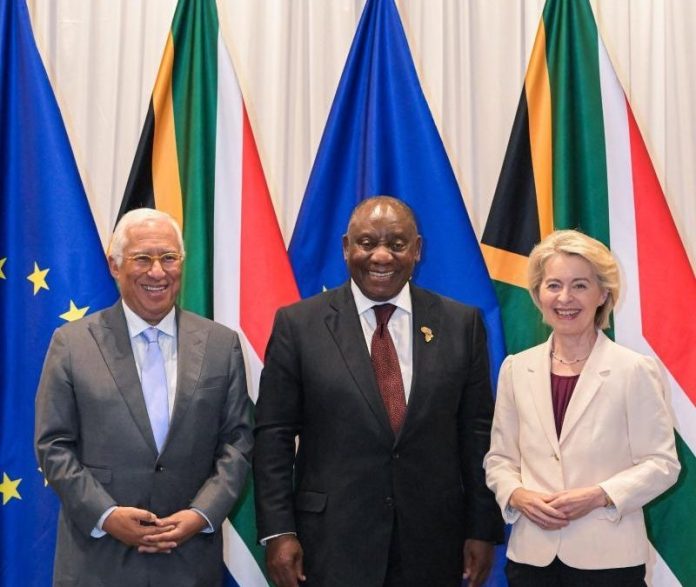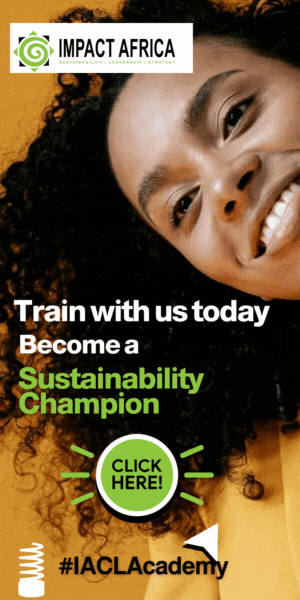The European Union has committed €7 billion to support renewable energy development across Africa, an investment aimed at closing the continent’s persistent energy access gap while advancing global climate goals. The announcement was made in Johannesburg on Friday at the Global Citizen Scaling Up Renewables in Africa event, days before the G20 Leaders’ Summit, the first in history to be held on African soil.
European Commission President Ursula von der Leyen framed the pledge as a concrete demonstration of Europe’s partnership with African nations, emphasizing that the continent’s energy transition is inseparable from inclusive economic growth.

The €7 billion forms part of a broader campaign that has now mobilized €15.5 billion since November 2024 for clean energy projects across Africa. According to von der Leyen, these funds are expected to generate nearly 27 gigawatts of renewable power, sufficient to provide electricity to 17.5 million households. The initiative is projected to double Africa’s current renewable energy capacity, a critical step toward the continent’s goal of universal energy access by 2030.
Beyond the immediate expansion of solar and wind infrastructure, the investment carries structural implications for Africa’s economic and industrial development. In countries such as Kenya, South Africa, and Morocco, which are already leading renewable adoption in the region, additional financing will accelerate deployment of large-scale solar farms, wind corridors, and grid-strengthening projects.
Read also: EU opens talks to scale back corporate sustainability rules, redefining CSRD scope for 2026
In nations with extremely low electrification rates, including Chad, Niger, and the Democratic Republic of Congo, these funds could finally provide stable electricity to communities reliant on costly and polluting diesel generators or limited off-grid solutions. Analysts note that energy access has a direct influence on local economies, affecting everything from small business operations and industrial production to education and healthcare delivery.
Hugh Evans, CEO of Global Citizen, highlighted that while the €15.5 billion mobilized so far represents only about one-sixth of the investment Africa needs to meet its energy and climate targets by 2030, the campaign marks a turning point. The funding is expected to catalyze additional private and public investment, supporting projects ranging from solar parks in Egypt and Morocco to wind farms in West Africa and critical grid infrastructure improvements across the Sahel and East Africa.
The timing of the EU pledge coincides with broader discussions on global trade, investment, and economic resilience at the G20 Summit. Speaking on Saturday (22 November 2025) during the G20 Session I titled “Inclusive and Sustainable Economic Growth – Leaving No One Behind,” von der Leyen stressed that Africa’s role on the global stage is critical.
She noted that while global economic growth is projected at just above 3% in the coming years, high uncertainty in markets has frozen investments, particularly in emerging economies. To counteract this, von der Leyen underscored the need for coordinated action through international institutions such as the IMF, WTO, and World Bank, alongside reforms to ensure a rules-based trading system.
Von der Leyen also highlighted Europe’s strategy to link trade and clean energy investment. The EU recently concluded a Clean Trade and Investment Partnership with South Africa, designed to facilitate trade and investment in renewable energy, green hydrogen, and critical raw materials. Similar partnerships are underway with countries in Asia and Latin America, underscoring the EU’s broader approach of coupling trade policy with sustainable development objectives.
Read also: AfDB approves US$100 million loan to boost Africa’s infrastructure and clean energy pipeline
Africa’s renewable energy potential remains largely untapped. The continent receives more solar radiation than any other region and has wind corridors in the Horn of Africa and southern regions among the most productive in the world. Yet, only about 11% of total energy capacity beyond hydropower comes from renewables, and over 600 million people still lack electricity. Closing this gap requires not only financing but policy frameworks, technical capacity-building, and regional cooperation, objectives that the EU pledges and associated partnerships aim to support.
While €15.5 billion is a substantial infusion, experts caution that Africa’s energy transformation will require sustained commitment, market reforms, and technical expertise to translate funding into operational impact. The challenge is particularly acute in low-income countries, where regulatory uncertainty, limited grid connectivity, and currency volatility can hinder project implementation.
Nonetheless, the combination of EU investment, global campaigns, and private sector engagement may create a tipping point, positioning renewable energy not only as a climate imperative but as a lever for industrialization, job creation, and improved quality of life across Africa.
The Johannesburg announcement reinforces a broader narrative emerging at the G20: that Africa’s economic resilience and climate ambitions are increasingly linked to global trade, investment, and sustainable energy partnerships. As governments, investors, and civil society converge on the continent’s energy future, the critical test will be whether these commitments can quickly move from pledges to practical implementation, delivering electricity to homes, powering industries, and creating a foundation for inclusive and sustainable growth.






